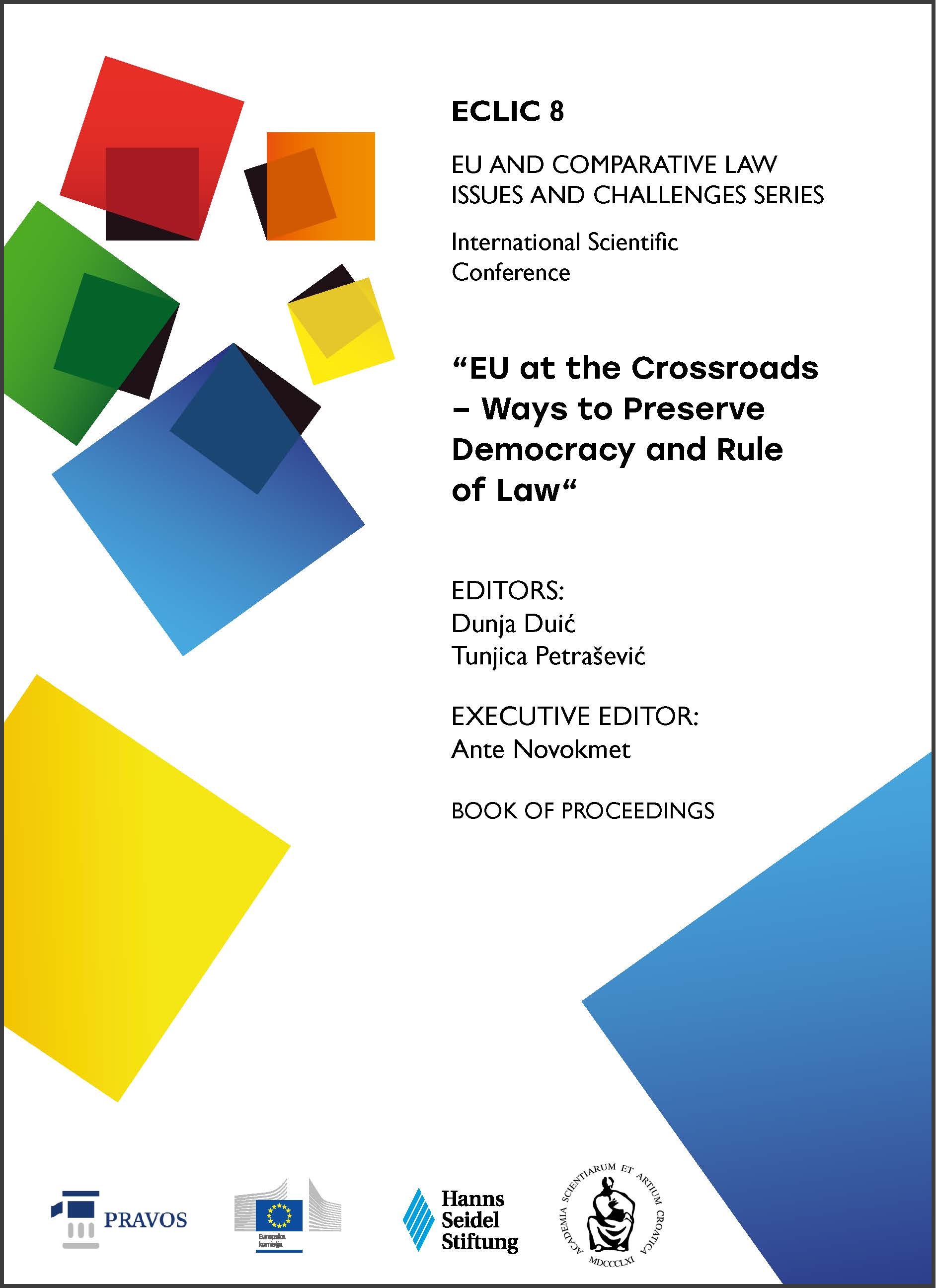CHALLENGES OF PERSONAL DATA PROTECTION ON THE INTERNET -IMPACT ON DEMOCRACY, PUBLIC ADMINISTRATION AND THE RULE OF LAW IN THE EU
DOI:
https://doi.org/10.25234/eclic/32313Abstract
Rapid development of information and communication technologies brings many challenges and risks for the protection of personal data since the internet has become enormously influential in virtually every aspect of daily life. Privacy and data protection are interrelated since data protection is a legal mechanism that ensures privacy of the subject on the Internet. Privacy is a fundamental human right, recognized in many international and regional human rights documents. The misuse of technologies has just recently shed some light on the meaning and importance of this subjective right in contemporary societies, and has also pointed to the problem of defining its content in context of informational and technological development. Digital transformation also affects the way how companies analyse consumer preferences in order to create personalized ads. The paper examines the right to privacy of personal data, existing legal framework for the protection of privacy and personal data and its impact on the rule of law in the EU, focusing on the examining of existing rules on processing personal data on the Internet, particularly legal regulation and challenges of processing personal data for the purpose of profiling and behavioral advertising on the Internet, using cookies. By processing data, companies on the Internet aim to develop new advertisements, products, and services specified to the particular consumer needs. Recent landmark decision of the Court of Justice of the European Union C – 252/21, (Meta Platforms and Others v. Bundeskartellamt) is analyzed as well, because it clarifies several points of data protection law, namely GDPR, regarding personalized use of consumers' personal data for behavioral advertising on social network platforms. The Court of Justice of the European Union made it clear that the personalization of advertising financed by the Internet social network Facebook cannot justify the processing of (sensitive) data if there is no consent given by the data subject. According to development of legislation of the European Council and the European Parliament and legal practice of the Court of Justice in digital transformation development, personal data protection became more significant and important part of regulatory framework the European Single Market. This regulation specific influences on approach and acting of public institutions, governmental bodies and private entities in personal data protection. This paper will analyze how challenges of personal data protection can influence on public institutions activity and citizens’ rights in two fields of regulation: access to personal data and possibility of collecting, using and manipulation of personal data with role of public institutions in personal data protection.
Downloads
Published
How to Cite
Issue
Section
License
Copyright (c) 2024 Mirko Klarić, Maja Proso

This work is licensed under a Creative Commons Attribution-NonCommercial 4.0 International License.
Authors retain the copyright on the papers published in the Journal, but grant the right of first publication to the Journal. Papers accepted for publication or already published in ECLIC of the Faculty of Law in Osijek may be published by the author(s) in other publications only with proper notice of its previous publication in ECLIC.


